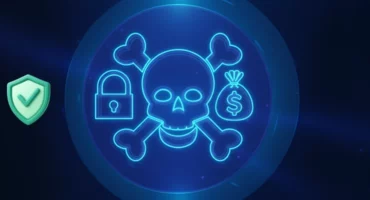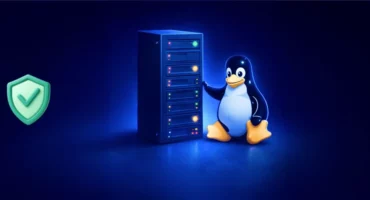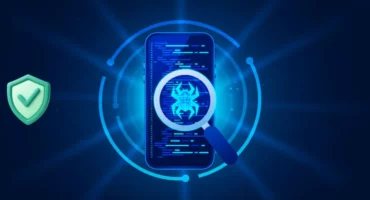The Truth About VPN Protection: Can You Be Tracked If You Use a VPN?
In case you have the fear of privacy and security over the internet, you might have considered the use of VPN. It has the ability to secure your online privacy, conceal your IP address, and encrypting Internet traffic through a virtual private network tunnel. Nonetheless, despite the increased security of VPNs, the question that bothers a great number of individuals is whether VPNs are completely resistant to online surveillance. Keep reading to discover the reality about VPN protection and whether one can still be tracked under a VPN or not.

Can you be tracked with a VPN?
To begin with, considering VPN tracking we are likely to think about the following factors: can anyone tell that you are using a VPN and what information will they be capable of seeing in this case?
While possible, tracking users who are using a VPN is much harder and depends on their online behavior. Here are some of the ways you can be tracked online even with a VPN on:
1. Cookies
Cookies are not edible and are small pieces of data that websites use to monitor your activity on their sites such as where you have already logged in or that you have items in your shopping cart. Although cookies are not bad per se, they may be deployed to identify the users even when they are accessing other IP addresses or devices. Given the fact that cookies are saved on the local device of a user as opposed to the VPN server, one can be tracked by cookies even when using a VPN.
2. Malware
Malware, also known as malicious software, is a program aimed at damaging or abusing the device of a user. Malware in the form of spyware, which is a hard nut to crack, may be installed on your computer and commence tracking your online activities.
Meta reports spyware to be used to target people on social media. All to compromise their accounts and steal sensitive info. This is despite the company’s efforts to remove accounts linked to spying companies. Nathaniel Gleicher, the head of security policy at Meta, says that no single company can tackle such a “society-wide” challenge as spyware:
They [spyware companies] are very ready to keep trying to come back, to re-establish their businesses.
3. DNS leaks
DNS leaks occur when a device used by the user transmits a DNS query beyond the VPN tunnel, disclosing their actual IP address instead of the VPN IP addresses, and revealing location to the websites and services they are accessing. The most important thing is to ensure that a reliable VPN vendor has been employed to avoid DNS leakage.
4. WebRTC leaks
WebRTC can be used to reveal a user’s real IP address even when they are using a VPN. To protect yourself against WebRTC leaks, you can use a browser that has built-in WebRTC leak protection, or get a VPN browser extension that blocks WebRTC requests.
5. Browser fingerprinting
Fingerprinting will mean gathering information regarding the set up of your system. The browser fingerprint typically includes your browser version and type, operating system, plug-ins, time zone, language, screen resolution and others. This information may be employed to monitor the actions of the user on the web, although he/she may be operating on a different device or using VPN.
As we see, an IP address isn’t the only thing that identifies us on the Internet, and even casual VPN users need to remember that their Internet connection can leave unique fingerprints. Besides, if you willingly share your personal info on social media or on other channels, a VPN won’t protect it.
Who can track you online?

The following are just some of the parties which might be interested in monitoring your online activity due to various reasons:
- Internet service providers (ISPs). Can see your web activity and even slow down your connection speed.
- Advertisers. Track users’ online activity to provide targeted advertising based on browsing history and interests.
- Government agencies. Keep a track of online activity, due to national security or to keep track of criminal activities.
- Cybercriminals. Follow around to steal sensitive information including login credentials, credit card numbers and other personal information.
- Employers. Might be interested in monitoring the online performance of employees to see how productive they are, and to make sure that policies set by the company are adhered to.
- Tech companies. track your web activity to get more advertising revenue.
What does a VPN hide?
And what is (should be) covered by a VPN anyway? Simply put, VPN alters your IP address (unique identifier given to every device which can be connected to the Internet) and encrypts your traffic over the Internet. This forms a personal device-VPN server network. Switching IP address will switch your position on the web and encryption will ensure your online activities remain confidential to snoopers.
However, ISPs, websites, and governments can detect that you’re using a VPN. So, how can you potentially be tracked with a VPN?
Can VPNs be tracked?
Yes, with a low quality or a free VPN. The latter may even sell your information to make profit. A trustworthy premium VPN will keep your data encrypted and hidden, using the latest standards, as well as masking your IP by sending your traffic via a new server. And even in case any person attempts to spy on your traffic, they will only notice the IP of the VPN server and not your own and no readable information. Information shared with the sites or services can only be tracked.
But let’s go over each case for more details.
Can you be tracked with a free VPN?
Free VPNs can sell your information to third parties in order to earn money. Others record your activity, your IP address, the site you are attempting to access and data transmitted. Such information may threaten your privacy and render the use of VPN useless. That is why we do not recommend them. Instead, it is safer to use a trusted VPN such as VeePN that does not retain a record of invasive usage and keeps your personal information a secret.
Can VPN be tracked by an Internet service provider?
Your ISP will not be able to track your activities over the internet such as the sites you visit or any other activities you are engaged in the moment you have connected to a VPN. They just know that you are on a VPN. They are only able to identify encrypted data to a server and not the contents of your traffic or source and destination.
Can Google track you with a VPN?
Yes, despite a VPN, your online actions can be still traced to you in case you surf the Internet when being connected to your Google account. That is the case with any web service that you have to log into. To achieve increased privacy, a VPN should be used during the process of being logged out and a privacy-oriented browser should be considered.
Can VPNs be tracked by governments?
The federal government will not be able to spy on individuals who use VPN traffic protected by strong policies, though they may try to request logs or make a VPN provider track user data if legally required. They can also demand connection logs of the ISPs and VPN providers when investigating a crime. However, in the case that the VPN service does not log anything, they will not have anything to reveal.
Nonetheless, law enforcement can monitor possible suspects in different ways including keyword warrants to technology firms like Google. Thus, a VPN can secure your IP, but it is up to you to ensure your privacy and security on the Internet, such as not making potentially incriminating searches and providing online services with the necessary information with care.
Can VPNs be tracked by employers?
It is determined by the kind of VPN that you are operating on, a business or a commercial (personal) VPN. In case you are using a business VPN which is sponsored by your employer, they can easily spy on you because a majority of business VPN record the activities of the employees.
Meanwhile, when you are on a commercial VPN, your employer can only observe your online activity to the extent that they have monitoring software on your work machine. As an illustration, when keyloggers are installed on your computer, a VPN will fail to conceal the typing activity of the employer. Other than that you are all right.
Can police track VPNs?
Without permission to access the traffic records of your ISP, the police can not monitor your live traffic. Alternatively, they can attempt to get your connection history with your VPN provider. See our article on police VPN tracking.
Can you be tracked if your VPN connection drops?
In case of VPN disconnects, the online activity and IP address will be exposed once again, leaving you without the protection of the secure tunnel. To prevent this, purchase the best VPNs with Kill Switch feature – they close your Internet access as soon as the connection with the VPN is lost to prevent any data leaks. Also, certain VPNs can leak your actual IP address in the form of DNS leakage. VeePN does not suffer this problem because it offers a DNS leak protection.
How to be untraceable online?
It’s almost impossible to stay completely anonymous online, but you can take steps to make it harder for others to track you. Here are a few things you can do:
- Be careful what you share online, because people who want to know more about you could use that information against you.
- Instead of Google, try using search engines that keep your searches private.
- Use web browsers that focus on keeping your online activity private.
- Use a reputable VPN to help keep your online activity private.
Tips for choosing a secure VPN
Prevent online data tracking with a trustworthy VPN. We strongly recommend avoiding free VPN services because they often do more harm than good. Many free VPN providers collect and sell user data or show you ads. Additionally, some of them may not have all the features you need. Also, some untrustworthy free VPN companies may not follow data retention laws and other regulations, too.
When selecting a VPN, keep these aspects in mind:
- No Logs policy implies that the VPN company does not log your web traffic or maintain any records which may be used to trace you. VeePN is transparent regarding the data that it gathers under its No Logs policy.
- Strong encryption protocols to ensure your online activity is secure. AES-256 VPN encryption is the industry standard to date. VeePN uses it along with leading VPN protocols to give your data the best protection.
- DNS leak protection is enabled to ensure that your queries in DNS remain confidential and are transmitted via the secure VPN tunnel. Switch this option on in the settings of VeePN to avoid data leaks.
- A Kill Switch can prevent your online activity from being exposed if the VPN connection fails. Switch it on in the VeePN app to always keep your data safe.
- Safe jurisdiction. Look for a provider based in a privacy-friendly jurisdiction. VeePN is located in Panama — the country has no mandatory data retention laws and isn’t a member of any intelligence sharing alliances.
Bottom line: Can you be tracked with a VPN?
VPN tracking is hard, but not impossible. But even if someone knows you’re using a VPN, like your ISP, websites, or hackers, they can’t access your sensitive information, real location or data. Just make sure you choose a VPN with a strict No Logs policy and strong encryption, like VeePN.
FAQ: Can You Be Tracked with a VPN?
Yes, VPN can be used to avoid the tracking of your location. It hides your IP address and encrypts your web traffic, as well as it is harder to track you.
No — with VPN, your internet activity is coded and your IP address is hidden. The owner of the Wi-Fi would only be able to tell that you are using a VPN and the data being transferred.
When visiting websites which are set up on HTTPS, the Wi-Fi owner will be unable to know the particular pages you are visiting but might know the domain names of the websites you are accessing. With that said, as long as you are using a good VPN service that has good encryption and security measures in place, then chances are that your online activities are safe. Nevertheless, secure browsing is always welcome and it is advisable not to access sensitive information using open Wi-Fi networks.
VeePN is freedom
Download VeePN Client for All Platforms
Enjoy a smooth VPN experience anywhere, anytime. No matter the device you have — phone or laptop, tablet or router — VeePN’s next-gen data protection and ultra-fast speeds will cover all of them.
Download for PC Download for Mac IOS and Android App
IOS and Android App
Want secure browsing while reading this?
See the difference for yourself - Try VeePN PRO for 3-days for $1, no risk, no pressure.
Start My $1 TrialThen VeePN PRO 1-year plan






